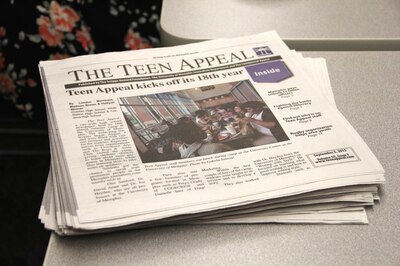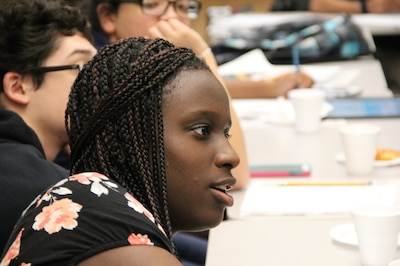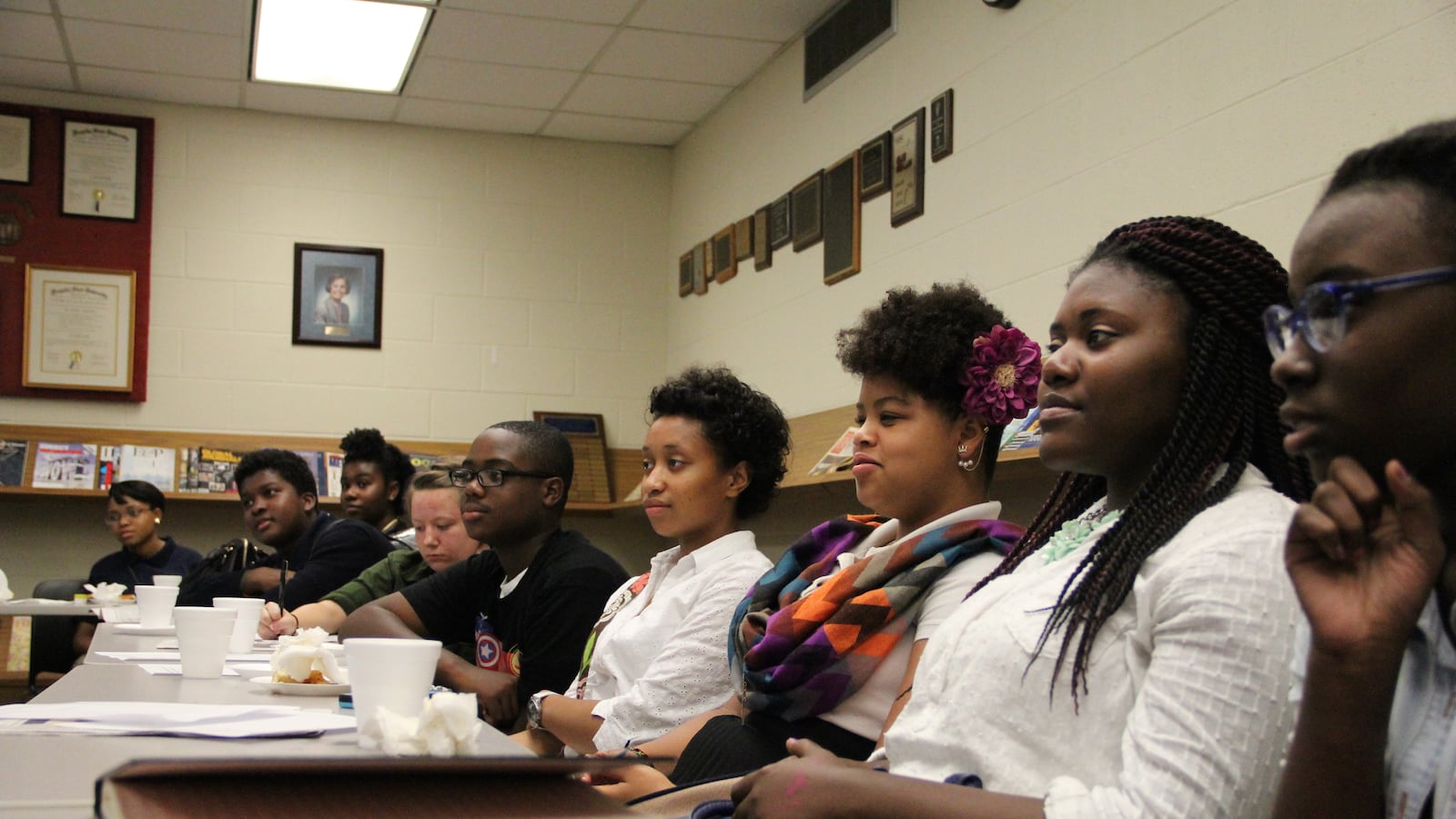Thea Wilson remembers the first time she saw her name in print as the author a newspaper article in Shelby County’s official student newspaper.
“It was so cool,” recalls the 18-year-old Memphis senior. “Just seeing it and going home and saying, ‘Mom, Dad, look at the article! My name is in the paper! I did it!'”

Wilson is one of about 65 student journalists who write for The Teen Appeal, a monthly print and online newspaper open to all students in Shelby County Schools.
For more than 17 years, the publication has brimmed with articles researched and written by students across the county on topics ranging from school news to sports to fashion to entertainment. It’s been published through a collaboration of The Commercial Appeal, the University of Memphis Journalism Department and the Scripps Howard Foundation.
This year may be its last, however, unless a new funder comes forward before Dec. 31 to fill the gap created when the program lost its annual $71,500 grant from the Scripps Howard Foundation. The change was prompted by Scripps’ sale this year of The Commercial Appeal, Memphis’ daily newspaper, to a media group based in Milwaukee, Wis.
Much of the grant pays for a full-time program coordinator, who also serves as an editor and mentor to the students. Under the partnership, The Commercial Appeal provides newspaper printing and delivery services to all 35 Shelby County high schools, with a circulation of more 16,000. The university’s journalism department provides an additional $10,000 to offer a journalism “boot camp” each summer for incoming staff.
“It’s one of the best things I’ve ever been involved in, and I’ve been in journalism for 40 years,” said Otis Sanford, a journalism professor at the university and former deputy managing editor for The Commercial Appeal.
“Just the idea of introducing high school students to journalism the way we do, the way it should be done — professionally — and link it to the journalism department and have these kids exposed … to the professors here and how we view journalism in the 21st century, I think it’s pretty special,” Sanford said. “I would hate to see us lose it because we can’t find what I consider to be pretty meager funding for a program that is so valuable to this community.”
The district currently supports only a handful of student newspapers, making The Teen Appeal the primary vehicle for student journalism across Shelby County.
Organizers say the program has been a sound investment by helping students to develop media literacy skills, engaging them in their school communities, and even inspiring some students to pursue careers in journalism and writing.
Alexis Ditaway, a 19-year-old graduate of Ridgeway High School, is a former Teen Appeal writer who now studies journalism at the University of Missouri, one of the nation’s premier programs.
“It’s important because there are kids in the inner city and surrounding area who want to write, want their opinions and ideas expressed, and they need a platform,” said Ditaway, now a sophomore in college. “It’s something that we need to continue.”
Supporters say the program’s list of accomplished alumni is a testament to the empowerment that comes with a vibrant student press. It also exposes students to career opportunities that most had never before considered.
“We’ve been keeping journalism alive in the public schools in the city of Memphis for all these years, and we’ve been raising professional journalists from a lot of the minorities of our city,” said David Arant, chairman of the journalism department at the University of Memphis. “They try to tell the great stories from their high schools, and they tell those stories in a light that we don’t always see in our daily newspapers.”
At a recent editorial meeting, about 20 students trickled in from the rain to a classroom on the university’s campus. Some drove or were dropped off by a parent, while others used city bus passes provided by the program. Each grabbed a slice of pizza before program coordinator and chief editor Elle Perry convened their monthly meeting.
“Does anybody have questions about a story they’re currently working on?” Perry asked. “Remember, it’s due on Monday.”
Launching into a planning session of the publication’s upcoming college edition, staff members spent the next hour pitching story ideas and brainstorming potential interviews and photographs. As a deadline-driven newspaper, students have three to four weeks to complete a story and correspond with Perry via email as part of the editing process.
“I let them speak in their own voices,” Perry said of her editing philosophy.

Sanford serves as the final editor before stories go to press.
“If we can grow some journalists for the next generation of journalism in whatever form that is, then we have already succeeded,” he said.
As for Wilson, she vividly remembers the challenge of writing her first article, interviewing strangers and turning their words into a story. But the result was enormously satisfying.
“It’s exciting knowing my work is being published,” she said, “and other teens read it and hear my voice about things.”

